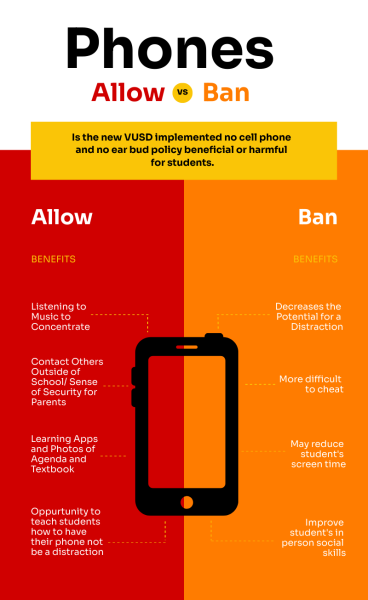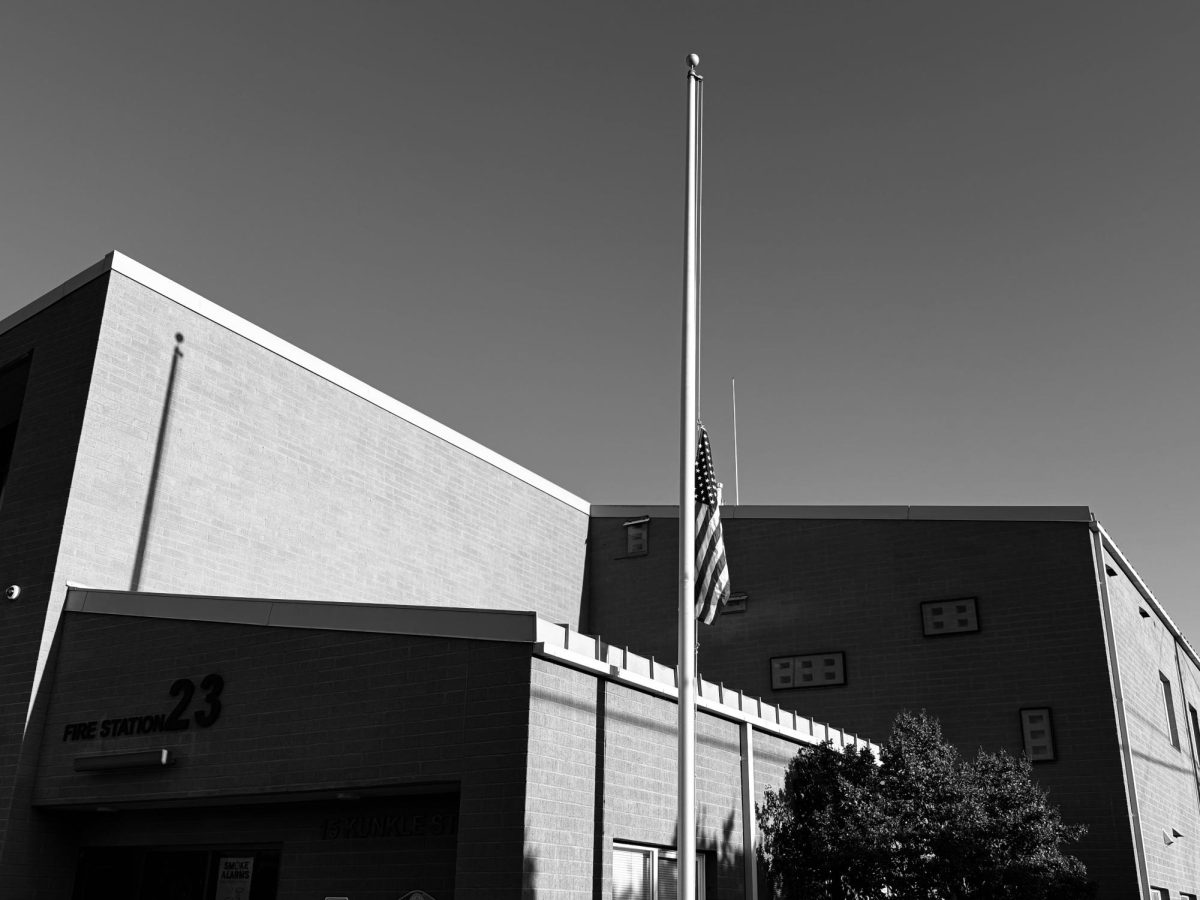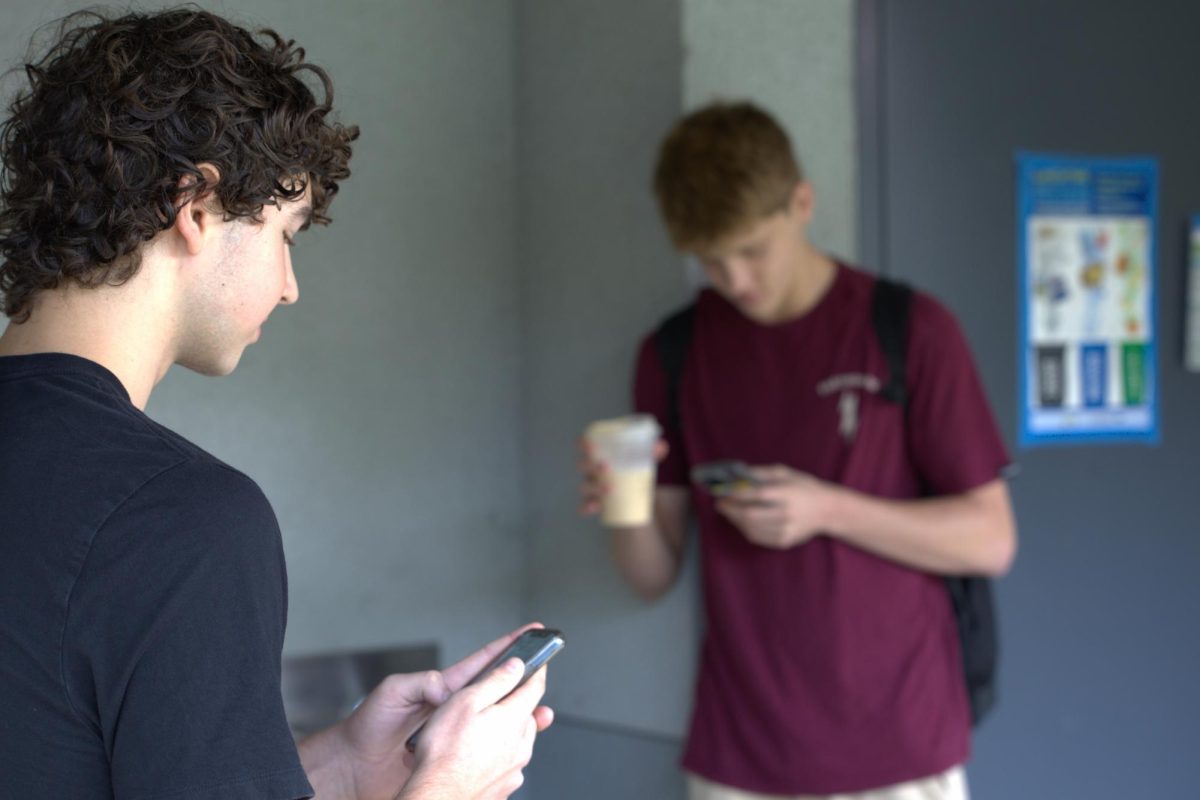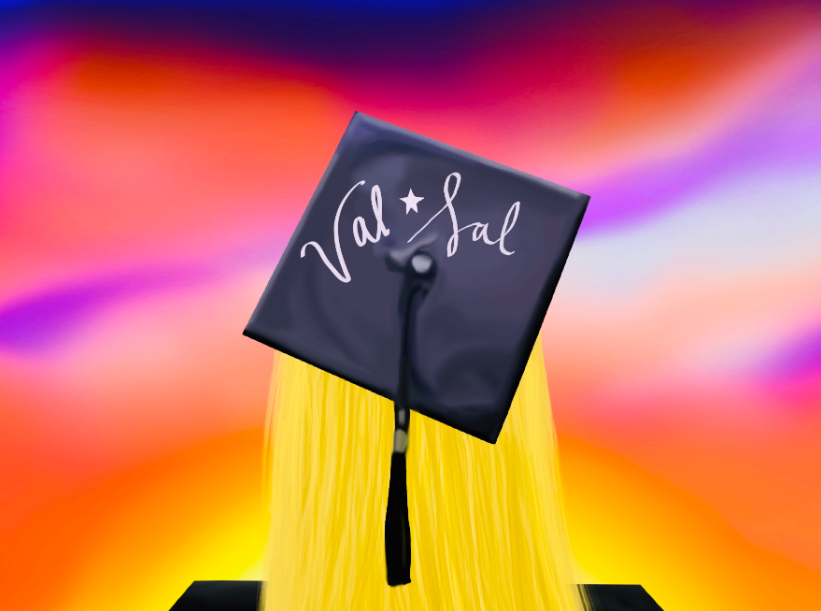Cell phones are becoming the latest growing problem for teenagers. The average American teenager’s screen time is “8 hours 39 minutes per day.” Moreover, most teenage students carry their cell phones in their pockets, a place where even the slightest buzzing can become a distraction for students — or at least that is what teachers and parents believe. Cell phones have become diminished to nothing more than a distraction; therefore, the benefits of cell phones are often overlooked. Whether it is parents enforcing a controlling eye on their child when they’re out, educators requiring their students to use online programs or other simple safety measures, going without a phone for a single day can be difficult. Despite this fact, the Ventura Unified School District (Ventura Unified) has implemented a drastic new cell phone and earbud policy at all middle and high schools of Ventura, Calif. in the 2023-2024 school year as an attempt to counteract the distraction.
There are four offenses and the consequences for each offense gradually intensify. After the first offense, teachers are only recommended to remind the student committing the offense of the no cell phone and earbud policy and to reach out to that student’s parents. The second offense can result in the teacher confiscating the student’s phone or earbuds for them to be picked up by the student at the end of the day. After the third offense, the student can be suspended for the remainder of the school day. The fourth offense can result in the student being banned from school dances, extracurriculars or from their off campus stamp if the administration determines it to be a fit punishment. The student may also have to drop off their phone at the beginning of each day for a certain period of time. After each offense, the number of the offense will be documented on the student’s permanent record.
Foothill Technology High School student Mikaela Clavaugh ’25 adds, “It feels very antiquated and like a desperate attempt to get students to pay attention, even though it could be done other ways.”
The administration is allowed to suspend students as cell phones can be considered a distraction. The California Ed Code 48900 k states that “disrupted school activities or otherwise willfully defied the valid authority of supervisors, teachers, administrators, school officials, or other school personnel engaged in the performance of their duties.” However, just because they have the right to do this does not mean it’s the correct solution. While cell phones and earbuds can be considered as distractions to some in class, it would be more wise for Ventura Unified to ease the students into this policy instead.

The new cell phone policy might be extreme for students that are in their junior or senior year, as they have already acclimated to the relaxed behavior from administration pertaining to cell phone or earbud usage. Furthermore, since Foothill Technology High School (Foothill Tech) is a technology-based school, there are many ways in which students have become accustomed to using their phones for school purposes — such as taking pictures of their teacher’s agenda or the textbook when necessary, as well as commonly used online learning programs like Kahoot that are easily accessed from the phone.
Since cell phones have become ubiquitous, there has been a rise in cheating with phones. With the world at your hands, there is so much a student can do. Platforms such as Photomath, Quizlet, calculators, texting and Google have concerned administrators. Despite all this, cheating has been around for as long as school has. Before cell phones existed, students could still cheat by passing notes, looking at other students’ papers and more. Although the new cell phone policy may eliminate the worry of students using their phones to cheat, there are still other ways for students to cheat. Emma Flores ’25 states, “I think it should be implemented by the teachers, and I understand how it is a problem in some classes, but in independent study classes, teachers should be able to allow them.”
As for the earbud policy, students are often left with time at the end of class to work individually and music has been shown to be a stress reliever and focus enhancer. While some believe the only good music to study with would be classical, that could not be farther from the truth. One research study found that those “who listened to a British pop group called Blur while completing a test did better than those who listened to classical music or no music.” Allowing students to listen to their own choice of music can do much more to aid in studying than the teacher’s choice of music. Some studies have also shown that “music therapy is an effective way to reduce feelings of stress and anxiety,” something that Ventura Unified has been trying to decrease.
Considering that Ventura Unified’s main goal is to promote student wellbeing and academic success, they need to consider all of the benefits that come along with phone usage. All students have different needs and it is jarring to experience this change after many teachers previously promoted the use of cell phones in academic contexts. This policy is an unnecessarily drastic change for many students and it is unfair to punish the many students who have not abused their phones or earbuds and genuinely put these tools to academic use.























